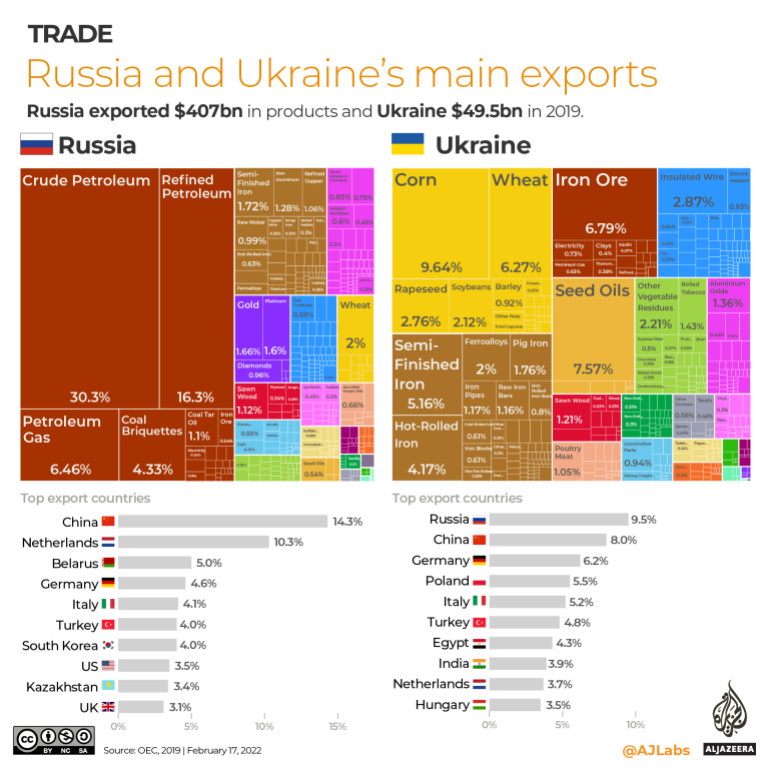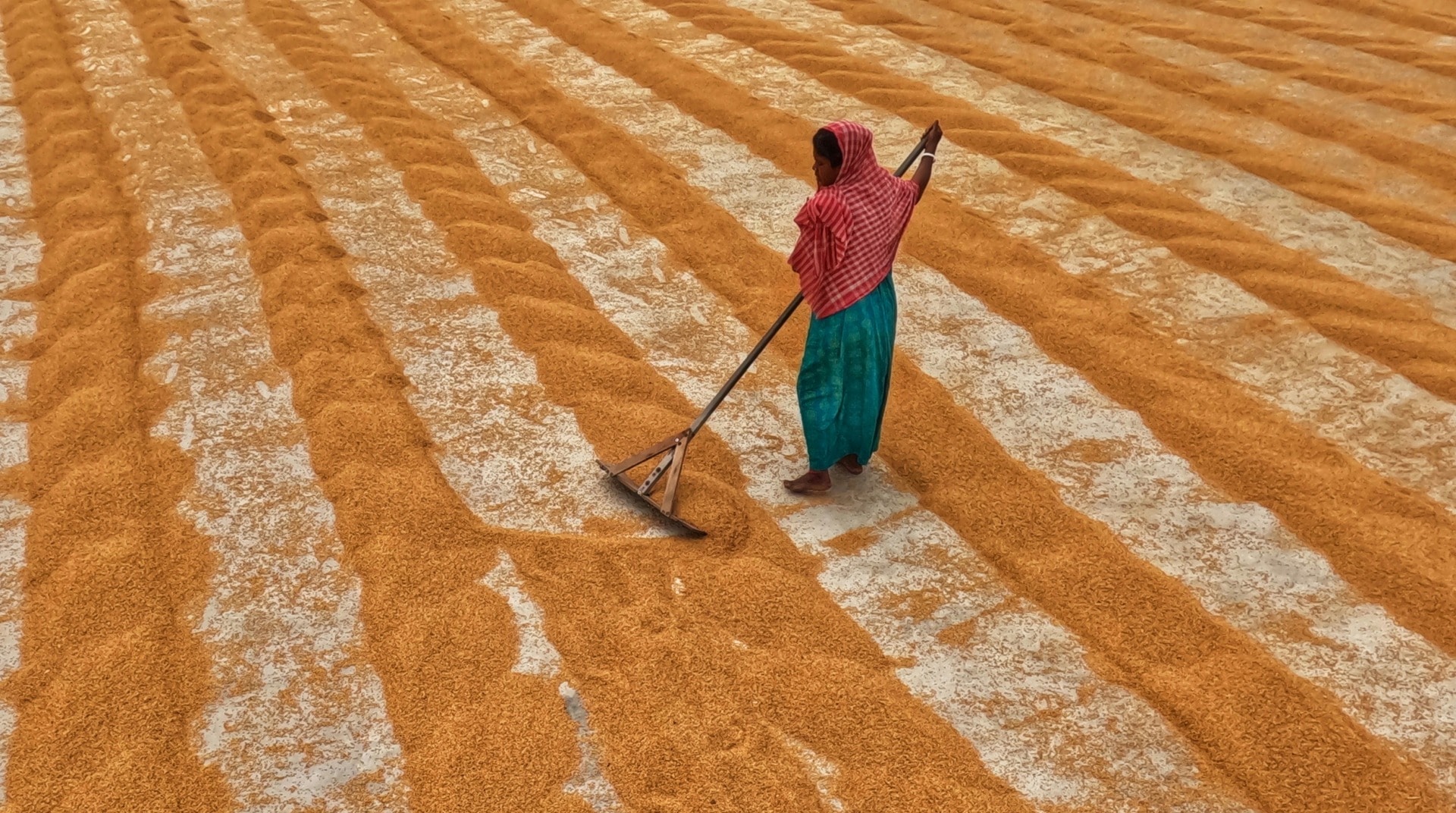Since the start of the Russian invasion of Ukraine, the world’s fifth largest wheat exporter, attacks against the country’s Black Sea ports have choked off Ukraine’s principal routes for grain exports, triggering a soar in food prices worldwide and initiating a global food crisis.
The war made the already-climbing world food prices skyrocket by preventing some 20 million tonnes of Ukrainian grain from reaching the Middle East, North Africa and parts of Asia. As a result, up to 181 million people in 41 countries could face a food crisis or even outright famine, United Nations projections show.
“Ethiopia, Nigeria, South Sudan and Yemen are ‘hunger hotspots’ facing catastrophic conditions,” according to the latest report by the World Food Programme (WFP) and the Food and Agriculture Organization (FAO). Afghanistan and Somalia are new entries to this worrisome list. A total of 750,000 people are already facing starvation and death in Ethiopia, Yemen, South Sudan, Somalia and Afghanistan.
The Democratic Republic of the Congo, Haiti, the Sahel region, Sudan and Syria remain “countries of very high concern” where conditions are critical, and deteriorating,” as UN Deputy Secretary-General Amina Mohammed put it at the Economic and Social Council meeting held in New York today.
At the meeting, which addressed recurrent crises and sustainable solutions as well as building resilience and addressing rising food insecurity and displacement, Mohammed referred to the combination of current global events as the “perfect storm of needs in developing countries.”
“The war in Ukraine has, combined with the climate crisis, the impact of the COVID-19 pandemic and the unequal recovery, created a perfect storm of needs in developing countries. We need new approaches and policies, commensurate with the challenges we face,” she said.
Weeks of negotiations on safe corridors to get grain out of Ukraine’s Black Sea ports have made little progress, with the urgency for success rising as the summer harvest season arrives. The European Commission has been working on an action plan to establish “Solidarity Lanes” to ensure Ukraine can export grain, but also import the goods it needs, from humanitarian aid to animal feed and fertilisers.
In spite of immediate efforts by the EU and its Member States to ease border crossings between Ukraine and the EU, thousands of wagons are still waiting for clearance on the Ukrainian side. The current waiting time for wagons is 16 days on average, and up to 30 days at some borders. There is also more grain stored and held back in Ukrainian silos ready for export.
Together, Russia and Ukraine export nearly a third of the world’s wheat and barley, and more than 70% of sunflower oil. The two countries are also prominent suppliers of corn, with Russia being the top global fertiliser producer as well.

Worst drought and famine in over a generation in the Horn of Africa
Due to factors like extreme weather conditions and poor harvests, food prices in the Horn of Africa were already rising before the invasion, especially as the global demand rebounded strongly from the COVID-19 pandemic. The region is also facing one of its worst droughts in four decades, whose negative effects are now merging with the impact of the war in Ukraine.
Despite the war being thousands of miles away, prices of grain and fuel in the Horn of Africa are being pushed to unprecedented levels.
Somaliland and Somalia, for instance, which normally receive about 90% of their grain from Russia and Ukraine, are now seeing their grain imports reduced to a trickle.
In addition, the price of fuel has almost doubled, making it more expensive to transport grain to those who need it. In Somalia, the world’s second poorest country, water comes to most people by trucks that fill tanks on the street.
As a consequence of rising fuel prices combined with the drought lowering water supplies in general, the cost of water in Somalia is now 60% higher compared to previous years.
Without international help, experts warn that hundreds of thousands will die of starvation.
“If we don’t act now, we will see an avalanche of child deaths in a matter of weeks, famine is just around the corner,” Mohamed Fall, the east and southern Africa regional director at UNICEF, said.
As UN Deputy Secretary-General Amina Mohammed concluded during his speech at the Economic and Social Council meeting:
“The world is facing a global hunger crisis of unprecedented proportions, and we are at a critical crossroads. Either we rise to the challenge of meeting immediate needs while supporting programmes that build long-term resilience at scale, or we will face even greater humanitarian crises down the line. It will take everyone’s efforts to fix a crisis that involves everyone.”
Editor’s Note: The opinions expressed here by Impakter.com columnists are their own, not those of Impakter.com — In the Featured Photo: In Somalia, almost half the population, or 6.2 million people, are facing acute food insecurity and are in need of humanitarian assistance. Featured Photo Credit: UNICEF.














